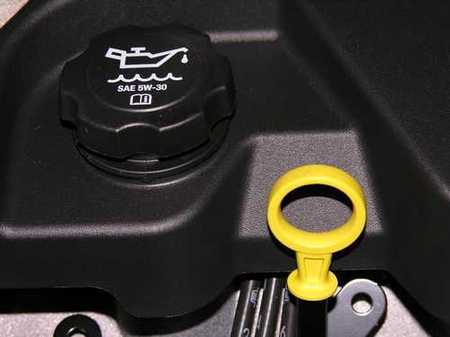Owners of 2017 and 2018 Honda CR-Vs have been reporting problems with increasing engine oil levels, warning lights, gas smell and loss of power. The issues are confined to the 1.5 L turbo CR-V. Initially, the problem was believed be was isolated to CR-Vs in China, where a stop sale order had been issued for CRV vehicles sold by Honda affiliate. Unfortunately, this issue is now plaguing American vehicles, but Honda has not taken any action to help owners in the US market.

What happens with these vehicles is that incomplete combustion causes gas to seep into the crankcase and mix with oil, which is why the oil level rises over time. While car owners might think that extra oil would help an engine by providing extra lubrication, the rising levels are in fact bad for the engine.
Gas in the oil, or oil dilution, washes oil off the engine parts. This means engine parts are operating without proper lubrication, resulting in damage and premature wear to engine parts. Engine failure may occur. Hopefully Honda would cover the cost of engine replacement under warranty if the engine fails, but that is not a sure thing. In my experience, all manufacturers have at times falsely claimed that consumers abused or failed to perform maintenance just to get out of paying for engine replacement under warranty.
If you have a 2017 or 2018 1.5 L turbo Honda CRV, do not wait to the check engine light comes on or the engine fails to take action. By waiting until after the first year to document issues, you will likely be giving away your chance to get a buyback or new car under many state Lemon Laws, including Pennsylvania and Ohio (but not West Virginia).
Start checking your oil level now and check it often. If the level appears to be going up, get your vehicle into a Honda dealership and continue to take it in if it goes up again. Make sure that the dealership gives you documentation of the visit, even if they claim that nothing is wrong. You should also take the vehicle in right away if there is gas odor in the passenger cabin, loss of power or the check engine light is on. It is always helpful to take a picture of the check engine light with the mileage in case light goes off before you get into the dealership.
After vehicle has been in the shop 3 or more times or over 30 days for check engine light, rising oil level, loss of power or gas smell, you should consider speaking to an experienced lemon law attorney in your state. Roseman Law Firm fights for consumers with defective vehicles in Pennsylvania, West Virginia, Ohio and Michigan at www.helpforlemoncars.com or 1-800-745-5259.
